Community and Leadership Programme Committee (CLPC)
Co-Chairs
Christoforos Mallouris, UNAIDS, International Co-Chair
Read the bio

Chris Mallouris works as the Community Mobilization Adviser at UNAIDS, Geneva. His work includes integration of community responses into national AIDS plans, good policy and practice, meaningful engagement of key populations, including people living with HIV, and acts as the UNAIDS focal point on people who inject drugs. Before joining UNAIDS, Chris worked as a consultant for the Social Justice 4 All consulting firm (2012-2013) and was the Director of Programmes at the Global Network of People Living with HIV (GNP+; 2008-2011), during which time he oversaw and managed all programmatic and advocacy work of the organization. He was with UNESCO (Paris) from 2003 to 2008, working on the education's sector response to AIDS. Chris holds a Bachelors of Art in Physics from Macalester College (1995), a Masters and a Ph.D. in Astrophysics from the University of Chicago (1996, 2001) and a Postgraduate Diploma in Public Health from the London School of Hygiene and Tropical Medicine External Programme (2009).
Louise van Deth, the Netherlands, Local/Regional Co-Chair
Read the bio
Louise van Deth is executive director of Aids Fonds and Soa Aids Nederland. She has been with this organisation since 2008. Before that she was director of an environmental NGO. She started her career as in investment banker in the Netherlands. Louise van Deth served on the board of many private foundations. Currently she is chair of the audit committee of the FNV, the largest labour union in the Netherlands. She is also on the board of Funders Concerned About Aids. Louise hold an MBA from Tuck Business School and a Master’s degree in English literature from the University of Amsterdam.
Michel Kazatchkine, Switzerland, Leadership Co-Chair
Read the bio
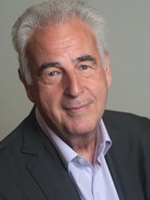
Professor Michel Kazatchkine has spent the last 30 years fighting AIDS as a leading physician, researcher. administrator, advocate, policymaker, and diplomat. He attended medical school at Necker--‐Enfants--‐Malades in Paris, studied immunology at the Pasteur Institute and completed postdoctoral fellowships at St Mary’s Hospital in London and Harvard Medical School. Professor Kazatchkine has played key roles in various organizations, including serving as Director of the National Agency for Research on AIDS (ANRS) in France (1998--‐2005) and Chair of the WHO’s Strategic and Technical Committee on HIV/AIDS (2004--‐2007). From 2005 to 2007, Professor Kazatchkine served as French Ambassador for the fight against HIV/AIDS and Communicable Diseases. In 2007, he was elected Executive Director of the Global Fund, a position in which he served until March 2012. In July 2012, Professor Kazatchkine was appointed as the UN Secretary--‐General’s Special Envoy on HIV/AIDS in Eastern Europe and Central Asia. He is a Senior Fellow with the Global Health Program of the Graduate Institute for International and Development Studies in Geneva, a member of the Global Commission on Drug Policy and serves as Chair of the Board of the Robert Carr Civil Society Networks Fund.
Members
Daughtie Ogutu, Kenya
Read the bio
Dorothy (Daughtie) Akoth Ogutu is a 33-year-old sex worker advocate living with HIV, from Kenya. She is Executive Director of African Sex Workers Alliance (ASWA). Daughtie is one of the pioneers of the Sex Workers Movement and activist in Africa coming out openly and publicly about being a sex worker despite the stigma and discrimination. She is featured in the Book ‘When I Dare to be Powerful”, which is a memoirs of 5 sex workers in East Africa around sex workers empowerment / self-determination. Daughtie is also known for her articulation of the issues faced by sex workers across Africa and the Globe through her activism, passion and media coverage. Her dedication to highlighting the issues of sex workers has earned her audiences with International Human Rights NGOs such as Amnesty International, UNAIDS and The Global Fund.
Gennady Roshchupkin, Estonia
Read the bio
Openly living with HIV and being a PLWHIV and gay community activist since 1991, Gennady is a co-founder of and Technical Support Coordinator of the Eurasian Coalition on Male Health (ECOM), which currently unites more than 50 MSM/LGBT organizations and activists in Eastern Europe and Central Asia. Gennady is a member of ITPC and EHRN. In 2008, he became a member of the Regional expert group on work with MSM in EECA. His expertise includes the development and empowerment of community networks, planning and provision of technical support to various stakeholders, BCC programs, HIV and STIs prevention and social support, and M&E of social projects and initiatives. He has published several articles and brochures on social support to PLWHIV and adherence to treatment, and acting as either a co-author or reviewer, took part in the development of at least 20 training modules on NGO management, VCT, BCC, social and psychological support to PLWHIV, and community empowerment.
Georgina Caswell, South Africa
Read the bio
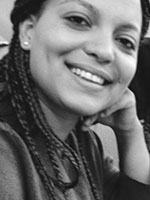
Georgina is a Programme Manager at the International HIV/AIDS Alliance, a global partnership of nationally based, independent civil society organizations dedicated to ending AIDS through community action on HIV, health and human rights. At the Alliance, Georgina is providing technical and project management leadership to projects in seven African countries, ensuring young people have access to quality and integrated sexual and reproductive health and rights (SRHR) and HIV services. Prior to joining the Alliance, Georgina worked with several community-based organizations to support people living with HIV and their communities on HIV and SRHR issues. As the programme manager at the Global Network of People Living with HIV (GNP+), Georgina supported networks of people living with HIV to share experiences and build their research and advocacy skills to access prevention and treatment resources and services. Georgina is Ghanaian/British and currently resides in South Africa. She studied at the Institute of Political Studies in Bordeaux and holds a bachelor’s degree in Politics and French from the University of Warwick and a master’s degree in Development Studies from the University of Manchester. She chairs the Access Committee of the International Partnership for Microbicides and the ViiV Positive Action for Girls Board.
Javier Bellocq, Argentina
Read the bio
Javier began working in HIV in 1988 in Buenos Aires, Argentina, and is a founding member of the Argentinean and Latin American PLWHA Network. Since having served in the board of GNP+ from 1995 to 2000, Javier has served in many international and regional boards, committees and working groups; such as the UNAIDS Program Coordinating Board and the Global Fund Board. Currently, Javier works as the Civil Society Representative in the CFATM LAC Board Delegation, and is a member of the Robert Carr Civil Society Network Fund International Steering Committee.
Lilianne Ploumen, the Netherlands
Read the bio
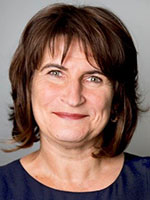
In 1983, while still at university, Lilianne Ploumen became a community outreach worker in the Crooswijk area of Rotterdam. Two years later she joined the Institute of Psychological Market Research (IPM), working in the statistics department and as a research project leader. IPM focuses on research-based consultancy. In 1995 she founded Ploumen Projecten, an organisation specialising in market research and innovation for commercial and non-profit clients. In the same year she also began working as a fundraising coordinator for Mama Cash, an international fund supporting women’s initiatives, going on to become director of the organisation from 1996 to 2001. From 2001 to 2007 Ms Ploumen worked for the development organisation Cordaid, first as head of quality and strategy and later as director of international programmes. She was Chair of the Labour Party (PvdA) from October 2007 to January 2012. Lilianne Ploumen remains Member of Parliament with the Labour Party (PvdA). She has been Minister for Foreign Trade and Development Cooperation in the second Rutte cabinet since 5 November 2012 until 26 October 2017.
Ludo Bok, USA
Read the bio
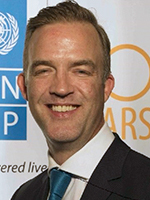
Ludo Bok is the Team Leader, Development Effectiveness of the UNDP HIV, Health and Development Group, and current acting as UNDP Global Coordinator for the Joint United Nations Programme on HIV/AIDS (UNAIDS). He leads the collaborative process of policy development in relation to UNAIDS, and the HIV and Health related dimensions of the 2030 Agenda for Sustainable Development. Mr. Bok has worked on global health and development for 20 years at the United Nations and in civil society, and has worked in Africa, Asia and Europe. Before joining UNDP, he worked for the UNAIDS Secretariat in a number of positions in Viet Nam, Switzerland, Lesotho and Zimbabwe. Before joining UNAIDS, Ludo worked for the African Medical and Research Foundation (AMREF) in Tanzania and the External Relations department of the Radboud University Nijmegen. A Dutch national, Mr. Bok holds a Master’s degree in Development Studies from the Radboud University Nijmegen, and a post-graduate certificate in cross-sector partnership from Cambridge University.
Read about the programme committee's vision
The AIDS response has yielded tremendous successes, but it has also demonstrated the staggering amount of work that remains to reach all people in need of treatment and to establish prevention services that are accessible, affordable, acceptable, equitable and grounded in human rights.
Reaching almost half of the 36.7 million people living with HIV with antiretroviral therapy is impressive and must be celebrated. However, 18 million people living with HIV are still not accessing treatment, and TB remains the leading cause of death among people living with HIV. Today, the tools to end the epidemic are available, and so is the evidence that they are effective. This tools include treatment, a broad range of prevention interventions, harm reduction, enabling legal environments, health and community systems that work together. However, it is of utmost importance to understand the barriers – systemic weaknesses, social and societal attitudes, punitive laws, policies and practices, financial limitations and restrictive political spaces – that leave half of people living with HIV and people at risk of HIV without the services required to bring an end to AIDS as a public health threat.
The political environment and development priorities are changing rapidly. Ending the AIDS epidemic is imperative in meeting the Sustainable Development Goals (SDGs). The universal and integrated nature of the 2030 Development Agenda, as well as the ambition to leave no-one behind, will require social movements, development sectors and scientists to work together to achieve the SDG goals.
In preparing for AIDS 2018, the Community & Leadership Programme Committee will work towards a new and renewed leadership for an AIDS response and for a transformation in the way we work: the way resources are used, the way funding mechanisms are constructed and accessed, the way evidence is applied, and the way we keep each other accountable and respond to inequities.
At AIDS 2018, demonstrating what works will not be enough. We must call out what is not working and where we must engage differently to advance human rights, involve communities meaningfully as decision makers, and abolish disempowering legal and policy environments, discrimination and marginalization.
The CLPC will also drive a “community” of new leadership that supports the greater involvement of people living with HIV and affected communities and that draws from the political arena, private sector, researchers and other stakeholders who have great influence to mobilize the human and financial resources and political will needed to end the AIDS epidemic. The CLPC will drive thought-provoking discussions on how to convince decision makers at international, national and local levels to work in solidarity to fully fund the AIDS response.
The CLPC envisions AIDS 2018 to be a unique opportunity to highlight the achievements and gaps in reaching treatment, prevention and human rights goals. It is also a unique opportunity to embed the AIDS response within a broader political and development agenda, demonstrating that neither AIDS nor other development goals can be reached without advancing gender equality, promoting peaceful and inclusive societies, promoting innovations, and addressing the underlying vulnerabilities of key populations at the systemic and societal levels.
The CLPC will work towards a conference of equals, reinvigorating leadership from all sectors, and supporting and empowering new leaders from all walks of life. This will be a conference that puts community priorities at the centre, reaffirms equity principles, builds bridges across social movements, and takes the greater and meaningful involvement of communities to the next level. This will be an all-embracing conference that creates space and opportunity for everyone, including people living with HIV, people who use drugs, men who have sex with men, sex workers, transgender people, prisoners and people in closed settings, displaced populations, women and girls, and young people.
The CLPC strives to ensure that the programme of the 22nd International AIDS Conference advances knowledge, strengthens unity and proposes transformations through open and dynamic dialogue between communities affected by HIV, political leaders, service providers, the private sector and scientists.
Scientific Programme Committee (SPC)
Co-Chairs
James Hakim, Zimbabwe, IAS Co-Chair
Read the bio
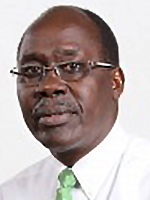
James Hakim is Professor of Medicine; formerly Chair of Medicine at the University of Zimbabwe College of Health Sciences. In addition, he is the Director of the UZ Clinical Research Centre and a Co-PI in the UZ-UCSF Collaborative Research Program, two programs which are involved in HIV/AIDS research including antiretroviral therapy, prevention, opportunistic infections and perinatal HIV. James is also the Principal Investigator of the UZ Medical Education Partnership Initiative-NECTAR, a PEPFAR and NIH funded programme (2010-2016), whose goal is to improve medical education capacity and research capacity strengthening to cope with the heavy burden of all diseases, especially HIV/AIDS in Africa. James Hakim trained at Makerere University, Uganda (MBChB); University of Nairobi, Kenya (MMed-internal medicine); Royal Colleges of Physicians UK (MRCP-UK); University of Newcastle, Australia (MMedSci-Clinical Epidemiology); University of Cape Town (Health Professions Education) and completed a post-doc in Cardiology at Aachen, Germany. He is also a fellow of the Royal Colleges of Physicians of London and Edinburgh. Recently, James Hakim was nominated for an award of a Doctor of Science in Medicine from University College London at a graduation ceremony in July 2016.
Sheena McCormack, UK, Local/Regional Co-Chair
Read the bio
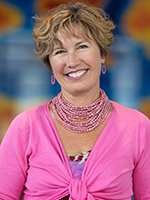
Sheena McCormack, MBBS, MSc, FRCP, Dip Ven., is a Clinical Epidemiologist who has been coordinating HIV prevention trials since 1994, when she joined what subsequently became the Medical Research Council Clinical Trials Unit. From the outset she has worked on HIV vaccine trials, all Phase I/II, in Europe and Africa. Since 1998 she has been involved in microbicide trials and was Chief Investigator of a Phase III vaginal microbicide trial that enrolled 9,385 women through six research centres in Southern Africa. Sheena has been a Consultant in HIV/GU Medicine since 1991, initially at the Royal Devon and Exeter Hospitals and since 1996 at Chelsea & Westminster Hospital working at the Dean Street clinic in Soho. She recently reported the PROUD PrEP study conducted in gay and other men who have sex with men which showed a very high level of effectiveness for daily oral Truvada in the real world setting of 13 sexual health clinics in England. PROUD was the first HIV prevention trial to use a randomization to immediate or deferred access in order to compare PrEP to no-PrEP and assess the impact on risk behavior and determine if any change in this would undermine efficacy. Although her primary current focus is to ensure that PrEP becomes available to those who need it in the UK and Europe, she continues to work on HIV vaccine trials and maintains an interest in microbicides. Sheena became a Professor of Clinical Epidemiology at Imperial College in August 2012, and joined UCL in August 2013 when the MRC Clinical Trials Unit became part of UCL.
Wafaa El Sadr, USA, International Co-Chair
Read the bio
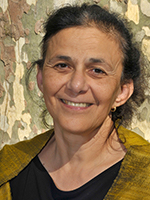
Wafaa El-Sadr is University Professor of Epidemiology and Medicine and Mathilde Krim-amfAR Professor of Global Health at Columbia’s Mailman School of Public Health and College of Physicians and Surgeons. Through ICAP at Columbia University, the Center she established more than a decade ago, she was instrumental in support of establishment of large-scale programs in sub Saharan Africa and Asia that integrate research, education, training and practice. ICAP works closely with US government agencies, international organizations, academic institutions, private sector, community-based organizations and civil society groups in the pursuit of responsive, inclusive, sustainable and innovative approaches to addressing global health threats and achieving public health impact. ICAP supports the education, training and mentorship of diverse workforce for health with a special emphasis on support for the nursing workforce. Dr. El-Sadr’s research interests are diverse and include research on the prevention and treatment of HIV, tuberculosis, non-communicable diseases, maternal-child health among others. She received her medical degree from Cairo University, a Master’s in public health from Columbia’s Mailman School of Public Health and a Master’s in public administration from Harvard University’s Kennedy School of Government. She was named as McArthur fellow and is a member of the National Academy of Medicine.
TRACK A: Basic and Translational Research
Co-chairs
Huldrych Günthard, Switzerland, Local/Regional Co-Chair
Read the bio
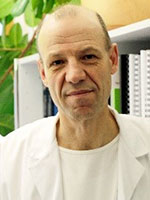
Prof. Huldrych F. Günthard is board certified in internal medicine and infectious diseases, is the deputy head of the Division of Infectious Diseases and Hospital Epidemiology, University Hospital Zurich, head of its HIV research laboratory, the president and Principle Investigator of the Swiss HIV Cohort Study, a member of the IAS-USA Antiretroviral Guidelines and Drug Resistance Mutation panel and a member of the research council of the Swiss National Science Foundation.
He is a physician-scientist and Professor at the University of Zurich in Switzerland, working as senior consultant in general infectious diseases and HIV-medicine, performing clinical, translational and basic research. His HIV-research focuses mainly on 1) emergence and transmission of drug resistance, 2) antiretroviral therapy, 3) the latent reservoir and residual replication, 4) broadly anti-HIV neutralizing antibodies, 5) transmission/primary HIV-infection, 6) pathogenesis and viral evolution. 7) Co- and sexually transmitted infections. He is interested in all aspects of infectious diseases and HIV-medicine in general. His major aim is to perform multidisciplinary research, bringing together, e.g. basic scientists, clinicians, epidemiologists/statisticians and bioinformatics researchers and strongly fosters international studies. He has authored > 300 peer reviewed scientific articles.
Sharon Lewin, Australia, International Co-Chair
Read the bio
Sharon Lewin is the inaugural director of the Peter Doherty Institute for Infection and Immunity, a joint venture between the University of Melbourne and Royal Melbourne Hospital. She is Professor of Medicine at The University of Melbourne and a consultant physician at the Alfred Hospital, Melbourne, Australia. Her research focuses on understanding why HIV persists on treatment and developing clinical trials aimed at ultimately finding a cure for HIV infection, and has published over 230 manuscripts. She is passionate about research translation and science communication, and the role of community in research and health. She was the local co-chair of the 20th International AIDS Conference (AIDS2014), the largest health conference ever held in Australia. She is an elected member of the governing council of the International AIDS Society and on the leadership team of the IAS Towards a Cure initiative. In 2014, she was named Melburnian of the Year.
Members
Galit Alter, USA
Read the bio

Galit Alter, PhD is an Associate Professor in Medicine at the Ragon Institute of MGH, MIT, and Harvard and leads a laboratory that collectively works towards the single goal of developing novel vaccine approaches aimed at recruiting and directing the antiviral activity of the innate immune system to kill virally infected cells. Dr. Alter received her PhD in Experimental Medicine from McGill University and performed her post-doctoral work under Dr. Marcus Altfeld at the Massachusetts General Hospital. Her current research interests lie at the intersection of the innate immune response and the adaptive humoral immune response, with a focus on defining the role of innate immune recruiting antibodies in providing specificity to the innate immune system to kill virally infected cells. Specifically, Dr. Alter’s work focuses on developing high-throughput assays aimed at dissecting the “protective profiles” and functional activity of polyclonal pools of antiviral antibodies induced via vaccination or during natural infection. To this end her laboratory has established high-throughput assays that simultaneously interrogate the functional activity of polyclonal pools of antibodies in tandem to defining the biophysical features of the most functional humoral immune responses. Together, Dr. Alter utilizes these data to then selectively purify the most “protective” antigen-specific B cells for RNA sequencing, to enable to production of the most potent therapeutic antibodies and to learn about the underlying mechanism by which protective B cell responses are programmed to aide in the development of next generation vaccines that may direct the antiviral activity of the innate immune response.
Peter Hunt, USA
Read the bio
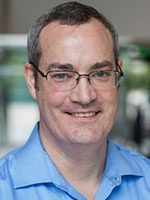
Peter Hunt is an Associate Professor of Medicine at the University of California San Francisco. His primary research focus is on the inflammatory consequences of HIV infection. He collaborates extensively with a multi-disciplinary team of investigators to assess the impact of persistent immune activation on mortality and chronic diseases associated with aging as well as on the persistence of HIV in cellular reservoirs. He also conducts pilot clinical trials of novel immune-based interventions designed to decrease immune activation and recently completed a term as Chair of the Inflammation Committee of the AIDS Clinical Trials Group. Dr. Hunt has also led a translational research program in Mbarara, Uganda, focused on the determinants of immune recovery during suppressive antiretroviral therapy in that setting and helped develop a large mucosal immunology program in San Francisco focused on the impact of HIV on gut-associated lymphoid tissue. He also leads a laboratory focused on the determinants of persistent adaptive immune defects in treated HIV infection, which likely contribute to infectious and neoplastic complications and may also serve as barriers to HIV cure.
Javier Martinez Picado, Spain
Read the bio

Javier Martinez-Picado is ICREA Research Professor at the AIDS Research Institute (IrsiCaixa) in Barcelona, an institution that works to advance clinical research and translate results into patients care. He is also associate professor at the University of Vic. He received his PhD from the University of Barcelona where he subsequently became associated professor lecturing on different microbiology related subjects. In 1996, he joined the Massachusetts General Hospital as postdoctoral fellow of Harvard Medical School, where he engaged in AIDS research. In 2000, he obtained a position as biomedical researcher of the Spanish Health Department appointed to the Hospital “Germans Trias iPujol” in Badalona (Barcelona). The research programs he is leading focus on understanding how HIV causes disease in recently infected people, exploring the best antiretroviral treatment strategies, fighting drug resistance, and collaborating on global HIV/AIDS vaccine development projects. He is currently co-chair of the IciStem Consortium and faculty of the BEAT-HIV Collaboratory. Dr. Martinez-Picado serves on different government, academic and industry advisory boards and has published extensively on HIV treatment strategies and HIV pathogenesis in international journals.
Monique Nijhuis, the Netherlands
Read the bio
Monique Nijhuis is an associate Professor of Virology at the University Medical Center Utrecht in The Netherlands. Her research interest is at the interface between fundamental and clinical virology and is centered on (1) Mechanisms of antiviral resistance and viral evolution and (2) Viral-reservoirs and eradication. She was granted by the Netherlands Organization for Scientific Research (NWO) with the VIDI and ASPASIA award. She is a member of the IAS HIV Cure International Scientific Working Group and the scientific advisory board of the Dutch Aids Fonds and associated editor of Retrovirology. She has served on many national and international grant review and PhD review committees. She has published over 100 papers in peer-reviewed journals and has guided numerous students, PhD students and Postdoctoral Fellows.
Sandhya Vasan, Thailand
Read the bio
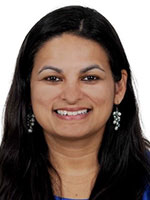
Sandhya Vasan obtained her undergraduate degree in mechanical engineering at the Massachusetts Institute of Technology before completing her MD at the Harvard-MIT Division of Health Sciences and Technology at Harvard Medical School. After a residency in pediatrics at Johns Hopkins University, she worked as a Henry Luce Foundation Fellow at the Communicable Disease Centre in Singapore, where she studied patterns of tuberculosis and HIV co-infection. From 2002-2011, Dr. Vasan conducted Phase 1 clinical trials of HIV vaccines and adjuvants and related immunology research at the Aaron Diamond AIDS Research Center and the Rockefeller University. Dr. Vasan is currently the Science Director at the Department of Retrovirology, US Army Medical Component of the Armed Forces Research Institute of Medical Sciences (AFRIMS) in Bangkok, Thailand. She works under the Henry M. Jackson Foundation as part of the US Military HIV Research Program (MHRP), which she joined in 2011 to support the conduct of preventative vaccine trials in follow-up to the RV144 Phase 3 Trial, other preventative and therapeutic vaccine trials, and studies of potential HIV cure. In parallel, she is Head of the Nonhuman Primate Laboratory to develop animal models to understand the mechanism of action of these vaccines and pursue novel HIV prevention strategies.
Reena Rajasuriar, Malaysia
Read the bio
Reena Rajasuriar is a senior lecturer in the Department of Pharmacy, University Malaya and an adjunct Research Fellow at the Peter Doherty Institute for Infection and Immunity, Melbourne University, Australia. She is also a post-doctoral scientist for the Centre of Excellence for Research in HIV/AIDS (CERiA) in University Malaya. Reena graduated with her Bachelor of Pharmacy (Hons) from University Science Malaysia in 2000 and Masters in Clinical Pharmacy in 2003. She was awarded her Ph.D degree in Immunology by Monash University Australia in 2012 and her doctoral research focused on immunogenetics in HIV patients. Dr. Rajasuriar coordinates the translational research program in HIV immunology at University Malaya. Her current research focuses on the immunopathogenesis of accelerated aging and modulators of immune activation in HIV.
Jo-Ann Passmore, South Africa
Read the bio
Jo-Ann Passmore PhD, is an Associate Professor in the Division of Medical Virology, Institute for Infectious Diseases and Molecular Medicine (IDM), University of Cape Town and Medical Scientist with the National Health Laboratory Services. She heads the Mucosal STI and HIV laboratory in the Division of Medical Virology at the University of Cape Town. Jo-Ann also heads the Mucosal Immunology program at CAPRISA, Durban. Her research focuses on studying genital tract adaptive and innate immune responses associated with protection from or susceptibility to sexually transmitted viral diseases including HPV and HIV. Identifying women at risk for HIV infection, development of POC tools to screen for HIV risk, and the role of PreP in HIV protection also forms an important focus of research in this group. Jo-Ann has published over 80 papers on mucosal immune responses to HIV, HPV and identified mucosal factors predicting HIV risk.
Cecile Tremblay, Canada
Read the bio
Cécile Tremblay is an infectious diseases/medical microbiologist and the Université de Montréal/Pfizer Chair on Translational HIV Research. She is full professor in the Dept. of Microbiology, Immunology, and infectious diseases at University of Montreal and at the Centre Hospitalier de l’Université de Montréal. After her infectious diseases certification in 1997, she pursued a fellowship at Massachusetts General Hospital, Harvard Medical School. She coordinates a pan-Canadian research initiative on the pathogenesis of HIV premature aging, and is the director of the Canadian Slow Progressors Cohort. From 2012 to 2015, she served as Director of the Laboratoire de Santé Publique du Québec. She was the Ipergay trial Canadian principal investigator. She is studying the impact of PrEP in a cohort of MSM in Montreal. She is also working to optimize Quebec HIV surveillance system.
Lara Vojnov, WHO
Read the bio
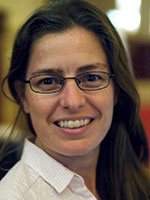
Lara Vojnov is the Diagnostics Advisor in the HIV and Hepatitis Department at the World Health Organization. In her current position, Dr. Vojnov leads normative guidance development and country support for HIV diagnostics, including viral load and early infant diagnosis as well as laboratory quality and development. Dr. Vojnov previously worked at the Clinton Health Access Initiative supporting government partners in diagnostic policy change and study development and execution. Her research areas included the patient impact of HIV-specific point-of-care technologies, diagnostic accuracy evaluations of new technologies, and novel interventions to increase coverage and access to HIV-related diagnostics. Dr. Vojnov received her PhD in Cellular and Molecular Pathology at the University of Wisconsin-Madison in the laboratory of Dr. David Watkins. Her research interests included the role of HIV-specific CD8+ T cells in controlling HIV infection and the ability of HIV-infected macrophages to resist CTL-mediated killing and act as a potential long-term reservoir of HIV.
TRACK B: Clinical Research
Co-chairs
Karine Lacombe, France, Local/Regional Co-Chair
Read the bio
Professor Karine Lacombe currently holds the position of Associate Professor in the Infectious and Tropical Diseases department of Saint-Antoine Hospital (AP-HP), in Paris, France. She teaches Infectious Diseases and Public Health in numerous universities and schools around France, Sub Saharan Africa and Asia. She is involved in the clinical and therapeutical management of HIV-infected patient care, at the inpatient and outpatient clinic of AP-HP. She has developed clinical research programmes in Europe, Sub-Saharan Africa and Vietnam on the issues of HIV-chronic hepatitis B and C, as well as co-morbidities associated with the use of antiretrovirals. She acts as member of the European AIDS Clinical Society Guidelines group, the French Committee and the World Health Organization’s guideline development groups in HIV and Hepatitis. She is involved in the UNAIDS Experts Panel for providing guidance on the global response to HIV.
Roy Gulick, USA, International Co-Chair
Read the bio
Dr. Roy Gulick is Rochelle Belfer Professor in Medicine and Chief of the Division of Infectious Diseases at Weill Cornell Medicine, and Attending Physician at the New York Presbyterian Hospital in New York City. Dr. Gulick’s research interests include designing, conducting and analyzing clinical trials to refine antiretroviral therapy strategies for HIV treatment and prevention, and assessing antiretroviral agents with new mechanisms of action. He currently serves as Principal Investigator of the Cornell-New Jersey HIV Clinical Trials Unit of the AIDS Clinical Trials Group (ACTG), and the HIV Prevention Trials Network (HPTN), sponsored by the U.S. National Institutes of Health. He also serves as the Co-Chair of the U.S. Department of Health and Human Services (DHHS) Panel on Clinical Practices for Treatment of HIV Infection, Chair of the NIH Office of AIDS Research Advisory Committee (OARAC), and a Board Member of the International Antiviral Society-USA. He has presented at national and international meetings and published widely.
Members
Judy Currier, USA
Read the bio
Dr. Currier is Professor of Medicine and Chief of the Division of Infectious Diseases and Co-Director of the Center for AIDS Research and Education Center (CARE) in the Department of Medicine at University of California, Los Angeles (UCLA). She is also Vice Chair of the NIH sponsored AIDS Clinical Trials Group and is currently the Principal Investigator of the UCLA AIDS Prevention and Treatment Clinical Trials Unit. Her research has focused on long-term complications of HIV disease with an emphasis on sex differences and antiretroviral therapy, women’s health and cardiovascular disease.
Beatriz Grinstzejn, Brazil
Read the bio
Beatriz Grinsztejn is an Infectious Diseases physician and researcher at the Evandro Chagas National Institute of Infectious Diseases/Oswaldo Cruz Foundation, in Rio de Janeiro, Brazil. She is the Director of the STD/AIDS Clinical Research Laboratory and Principal Investigator of the FIOCRUZ HIV Prevention and Therapeutic Clinical Trials Unit at FIOCRUZ, which is affiliated to the HIV Prevention Trials Network, the AIDS Clinical Trials Group and the ANRS, and implements Prevention and Therapeutic clinical trials and cohort studies. She is a member of the Brazilian Advisory Committee for Antiretroviral Therapy and HIV/AIDS Research, the WHO 2013 Adult Antiretroviral Therapy Guidelines Panel, the IAS-USA HIV Prevention Panel and the UNAIDS Scientific Expert Panel. Dr. Grinsztejn is a Faculty Member of the Masters and PhD Degree Program on Clinical Research in Infectious Diseases at Oswaldo Cruz Foundation.
Andrew Kambugu, Uganda
N Kumarasamy, India
Read the bio
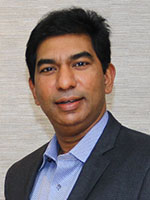
Dr.N.Kumarasamy is the Chief Medical Officer at YRGCARE Medical Center, VHS and directs the clinic which provides medical care for more than 20,000 persons with HIV and Infectious Diseases in Chennai, Southern India. Dr. Kumarasamy is the Chief and Site Leader for the Chennai Antiviral Research and Treatment (CART) Clinical Research Site of US National Institutes of Health which conducts multisite Therapeutics (ACTG) and prevention (HPTN) clinical Trials. He is involved as Clinical Investigator for several on- going clinical research projects with University of California-San Diego, Harvard University and Brown University, USA and is also the site Principal Investigator for the Treat Asia Network. Dr. Kumarasamy is a clinician and a researcher in Infectious disease with more than 20 years of experience in the field of HIV Medicine and has published more than 325 manuscripts in peer reviewed medical journals. His publications on Impact of Antiretroviral therapy has led to several Antiretroviral scale up programs in developing countries. Dr.Kumarasamy is an expert panel member for WHO- ARV Treatment guidelines committee and a Clinical advisor to Clinton Health Access Initiative. He has a particular interest on the long term impact of Antiretroviral Therapy in resource limited settings.
Noel Magloire Manga, Senegal
Cristiana Oprea, Romania
Reinout Van Crevel, the Netherlands
Read the bio
I studied Medicine in Amsterdam and now work as an internist-infectious diseases specialist, covering the full spectre of infectious diseases, and actively participating in education of medical and biomedical students. In my research I have conducted or led translational and multidisciplinary studies on TB and HIV for over 15 years, spending three years working in Indonesia, and supervising many PhD students. My research now focusses on innate host responses to mycobacteria, tuberculosis transmission, and tuberculosis ‘phenotypes’, like combined diabetes and tuberculosis and tuberculosis meningitis. In Jakarta I am involved in central nervous system infections and HIV/TB research. My international work has a strong component of capacity strengthening, aiming for better patient care and academic development of clinicians and researchers, especially in Indonesia.
Geraldina Dominguez, USA
Read the bio

Dr. Geraldina Dominguez received her B.S. in Applied Biology from the Georgia Institute of Technology and her Ph.D. from Georgia State University. Dr. Dominguez was awarded a Resident Research Associateship from the National Research Council to study the genetic and genomic structure of human herpesviruses 6,7 and 8 at the Centers for Disease Control and Prevention (CDC) in Atlanta, Georgia. After CDC, she moved to the Yerkes National Primate Center of Emory University to conduct studies on the signal transduction pathways and transcriptional regulation of the CART gene (Cocaine and Amphetamine Regulated Transcript). In 2004, Dr. Dominguez started working at the National Cancer Institute as an International Project Officer in the Office of International Affairs, and in 2005 she accepted a Program Director position in the Office of HIV and AIDS Malignancy (OHAM). Currently, she serves as the Director of the AIDS Malignancy Program in OHAM. Dr. Dominguez plays a major role in developing and managing HIV and AIDS malignancy initiatives, including initiatives that increase research capacity in resource constrained settings. Dr. Dominguez has received two NIH Director’s Awards and one NCI Award of Merit for her role in supporting initiatives that build research capacity in resource constrained regions.
Dorothy Mbori-Ngacha, UNICEF
TRACK C: Epidemiology and Prevention Research
Co-chairs
Caroline Sabin, UK, Local/Regional Co-Chair
Read the bio
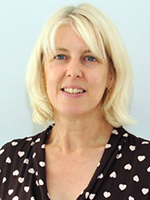
Caroline Sabin, PhD, is Professor of Medical Statistics and Epidemiology at University College London (UCL), and is Director of the National Institutes for Health Research (NIHR) Health Protection Research Unit in Blood Borne and Sexually Transmitted Infections. Over the past 25 years, Prof Sabin has worked on the analysis of large observational HIV databases with a particular interest in raising awareness of the biases inherent in these databases – her particular interests are in describing the natural history of HIV infection, identifying prognostic markers and describing responses to cART (including adverse events). She established, and is the principal investigator on the UK Collaborative HIV Cohort (UK CHIC) Study, and since 2001, she has been the principal statistician for the D:A:D Study. More recently, she has been the co-PI on the POPPY Study, a new cohort to study the effects of ageing in HIV Infection. She has been closely involved with many other large HIV cohort studies and collaborations, both in the UK and abroad.
Nittaya Phanuphak, Thailand, International Co-Chair
Read the bio
Nittaya Phanuphak is currently the Chief of the Prevention Department at the Thai Red Cross AIDS Research Centre (TRCARC) in Bangkok, Thailand. She joined the TRCARC in 2002 to lead a country-wide prevention of mother to child transmission (PMTCT) operational study. She has a deep interest in HIV prevention and key populations (KP), especially around the use of Community-Led Health Service (CLHS) approaches to enhance access to HIV testing, prevention and treatment. She started the country’s first Test and Treat Study among 800 Thai MSM and transgender women in 2012. She currently works actively with community and government partners to establish a national technical assistance platform to support the accreditation and legalization of the CLHS model to ensure its sustainability through domestic a financing mechanism.
Members
Nelly Rwamba Mugo, Kenya
Read the bio
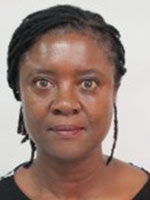
I have 25 years of experience as a reproductive health specialist working from rural district facilities to the National teaching hospital. In the last 14 years, the majority of my work has shifted to research with a focus on reproductive health and HIV prevention clinical research. My work in HIV prevention commenced 10 years ago, collaborating with the International Clinical Research Center (ICRC), University of Washington, working as a regional director for the HSV/HIV transmission study, a clinical trial with 14 sites in 7 countries in East and Southern Africa. Thereafter, I initiated a clinical trial site in Thika, Kenya which participated in two landmark HIV prevention trials: HSV/HIV Transmission Study and the Partners PrEP study both working with HIV-serodiscordant couples, in addition to several observational related studies. As an honorary lecturer at the University of Nairobi, I teach both undergraduate and post graduate students in the department of obstetrics & gynaecology and the clinical epidemiology unit. I initiated the Kenyatta National Hospital department of research, organizing the annual scientific conference and providing leadership to increase implementation research in the hospital. I currently lead a research team in Thika, Kenya and work as a senior research scientist at the National research institute (KEMRI), where I head the sexual reproductive and adolescent child health research program. The majority of my HIV-prevention research work has been working with HIV-serodiscordant couples, my research team in Thika is currently one of the ‘Partners PrEP demonstration study’ sites working in collaboration with the ICRC, University of Washington among HIV-serodiscordant couples.
Kevin M. De Cock, Kenya
Read the bio

Kevin M. De Cock, MD, FRCP, is Director of the U.S. Centers for Disease Control and Prevention’s (CDC) Kenya office and of the CDC’s Division of Global HIV/AIDS Kenya. Dr. De Cock previously served as the founding Director of the CDC Center for Global Health (CGH) in Atlanta. He has been on the faculty of medical schools in the United Kingdom (University of London), the United States (University of Southern California), and Kenya (University of Nairobi). From 2006–2009 he served as Director of the World Health Organization’s (WHO) Department of HIV/AIDS. He also previously served as Director of the CDC Division of HIV/AIDS Prevention, Surveillance, and Epidemiology. He served as CDC Team Lead on three separate occasions for the CDC Ebola response in Liberia in 2014-2015. He has published over 360 articles and book chapters. He is a recipient of the Chalmers Medal, Royal Society of Tropical Medicine and Hygiene; Commandeur de l'Ordre de la Santé Publique, and Officier de l’Ordre National, Côte d'Ivoire; and the CDC William C. Watson Jr. Medal of Excellence, amongst other awards.
Frances Cowan, Zimbabwe
Read the bio
Frances joined Liverpool School Tropical Medicine on August 1st 2016. She has lived and worked full time in Zimbabwe since 1999. Frances has also worked across Southern Africa and in India. In 2012, she founded the Centre for Sexual Health and HIV AIDS Research (CeSHHAR) Zimbabwe. Frances leads a portfolio of HIV prevention research, which includes large scale impact evaluations of national HIV programs. She works closely with the Zimbabwe Ministry of Health and Child Care and National AIDS Council to provide evidence for their HIV prevention strategy. She was co-chair of HPTN’s Adolescent Science Committee 2007-2016, has been on a number of WHO expert panels and is co-PI on a number of research capacity strengthening initiatives focusing on Southern Africa.
Evgeny Voronin, Russia
Kimberly Green, Vietnam
Read the bio
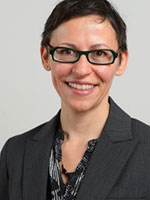
Dr. Kimberly Green has worked for more than twenty years in public health management, policy development and research. She specializes in health service delivery innovations; HIV prevention, care and treatment among key populations; leveraging private sector partnerships; and social behavioral communication. Since 2014, Dr. Green has led HIV/TB/NCD initiatives at PATH Vietnam including the pioneering USAID/PATH Healthy Markets project, leveraging innovation and partnerships to increase access to effective HIV prevention and 90-90-90. With FHI 360, Green led a large-scale HIV prevention and care project in Ghana, reaching men who have sex with men, sex workers and people living with HIV; and was an Asia regional technical advisor for FHI 360, assisting Ministries of Health (MoH) and implementers in designing and implementing HIV prevention, care and treatment services. With CARE Cambodia, Green partnered with the MoH to test and scale HIV care and treatment services (Continuum of Care), and tailored HIV prevention interventions to populations at greatest risk of infection. She holds a PhD from the London School of Hygiene and Tropical Medicine, and has authored more than 40 publications.
J. Peter Figueroa, Jamaica
Read the bio
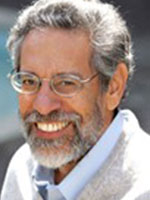
J. Peter Figueroa is Professor of Public Health, Epidemiology and HIV/AIDS at The University of the West Indies, Mona, Jamaica where he has led the development of a doctorate of public health (DrPH) program. He led the National HIV Program in Jamaica from its outset in 1986 until 2008 and he served as Chief Medical Officer from 1997–2002. He has represented Jamaica at many international meetings, served on numerous committees of WHO, PAHO, UNAIDS and other international agencies and conducted consultancies in the Caribbean and parts of Africa and the Middle East.
He is a member of the UNAIDS scientific expert panel. He was Deputy Chair of the Pan Caribbean Partnership against AIDS (PANCAP) 2009 – 2015 and is Vice Chair of the Caribbean RCM. He is the chair of PAHO’s Technical Advisory Group (TAG) on Immunization. He was a member of WHO’s Strategic Advisory Group of Experts on Immunization (SAGE} from 2009 – 2015. He has published widely on HIV/ STIs, communicable diseases, and public health including 140 peer reviewed papers and 3 books.
Julia del Amo Valero, Spain
Read the bio
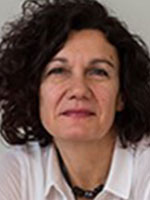
Dr Julia del Amo is tenured Professor in Biomedical Sciences in the National Center for Epidemiology, Institute of Health Carlos III in Madrid, Spain. She has a solid track in researching inequalities in HIV infection, with a particular interest in inequalities by gender, race/ethnicity and migrant status. She has contributed to the understanding of HIV disease progression in migrants, ethnic minorities and women and to estimate the burden of disease of HIV in migrant populations in the European epidemiological data and their HIV testing patterns. She has worked closely with civil society and migrant organizations. She has had uninterrupted research funding through competitive grants for the last 15 years in the fields of HIV epidemiology and is/has been principal investigator of numerous grants at Spanish and European level. She has been the epidemiological coordinator of the cohort of the Spanish Network of Excellence on HIV, RIS, and is member of the scientific and governing bodies of CASCADE and ART-CC. She has co-authored over 200 publications in peer-reviewed journals, written book chapters and technical reports. She has 15 years post-graduate teaching experience participating in Masters and Doctorate programs, largely in Epidemiology and Public Health, Infectious Diseases and Humanitarian Medicine Programs and has directed 14 doctoral theses.
Peter Godfrey-Faussett, UNAIDS
TRACK D: Social and Political Research, Law, Policy and Human Rights
Co-chairs
Catherine Hankins, the Netherlands, Local/Regional Co-Chair
Read the bio
Catherine Hankins MD MSc PhD FRCPC CM is Deputy Director, Science and Scientific Chair of the annual African INTEREST conference, Amsterdam Institute for Global Health and Development. She is Professor of Public and Population Health, Faculty of Medicine, McGill University and Honorary Professor at the London School of Hygiene and Tropical Medicine. She chairs the Scientific Advisory Board of CAPRISA, KwaZulu-Natal, and the USA National Institutes of Health’s, HIV Prevention Trials Network’s Scientific Advisory Group. She was principal investigator of studies involving women, prisoners, and people who inject drugs, and of population-based epidemiological studies, before joining UNAIDS in 2002, as Associate Director and Chief Scientific Adviser. She was the editor of the popular UNAIDS’ science blog HIV This Week, a trustee of the UK HIV Research Trust and member of the International AIDS Society Industry Liaison Forum. She was named to the Order of Canada in 2013.
Maksut Kulzhanov, Kazakhstan, International Co-Chair
Read the bio
Dr Maksut Kulzhanov is a trained physician and scientific researcher. He has acted as Deputy Director of Scientific Research at the Institute of Hygiene, and Head of the Department of Health Planning and Forecasting. He has served as the Deputy Minister of Health, responsible for science, education, economy, finance and health care reform, Rector of Kazakhstan School of Public Health, and Director General of the Republican Center of Health Development. He is currently Professor of the Kazakhstan School of Public Health, and Advisor to the Minister of Health.
Morenike Ukpong-Folayan, Nigeria, International Co-Chair
Read the bio
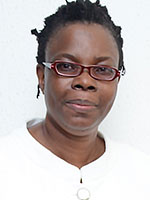
Dr Morenike Ukpong-Folayan is a Reader with the Obafemi Awolowo University and pursues her advocacy work on the platform of the New HIV Vaccine and Microbicide Advocacy Society both located in Nigeria. She addresses herself as a community ethicist who advocates for the active engagement of people who can appropriately represent communities in the design, implementation and monitoring of research that impacts on their rights and welfare. She promotes and facilitates community engagement in research as an ethical imperative. She has been actively engaged in the development of international and national guidelines and documents and facilitates community engagement in biomedical HIV prevention research. She also works on key populations and adolescents’ issues with focus on highlighting sexual, reproductive, mental and oral health problems of adolescents in general, and those most vulnerable to health problems, face. Her work with colleagues in the field not only generated evidence on the need to address sexual and reproductive health, but it also led to the development of a national document that provided guidelines on tackling ethical issues associated with conducting research with adolescents in Nigeria. More recently, Dr Ukpong-Folayan advocates and has written multiple publications about 'why' and 'how' stakeholders can be engaged with Ebola research. She has experience designing, implementing and reporting both qualitative and quantitative studies for research; conducting monitoring and evaluation exercises for both general and key populations programmes; and advocating for use of research outcomes for policy formulation and programming in the field of HIV, bioethics and adolescents’ health in Nigeria. She has also worked on the development of guidelines developed by WHO on ethical conduct of research during infectious disease emergencies; and principles of stakeholders’ engagement in research conducted during infectious disease emergencies. She is currently looking at how to resolve ethical quagmire that may be associated with engaging communities in research conducted during infectious disease epidemics of the type and nature witnessed with the Ebola epidemic. She had worked as a Consultant with the National Agency for the Control of AIDS, Population Council, ITAD, UNAIDS, WHO, Global Fund, MEMSII (a USAID funded project), WHO among others. She has also worked in a number of Africa countries including Kenya, Botswana and Malawi.
Members
Michaela Clayton, Namibia
Read the bio
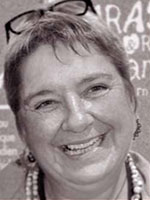
Michaela Clayton is the Director of the AIDS and Rights Alliance for Southern Africa (ARASA), a regional partnership of civil society organisations working together to promote a human rights based response to HIV and TB in southern and east Africa. Ms Clayton is a human rights lawyer who has worked on HIV and human rights issues in Namibia, and subsequently regionally and internationally since 1989. She was one of the founding lawyers at the Legal Assistance Centre in Namibia, where she established the AIDS Law Unit to provide a legal service to people living with HIV and AIDS. Whilst at the LAC Ms Clayton assisted in the drafting of the majority of Namibian sectoral HIV policies as well as in the drafting of the Namibian National HIV/AIDS Policy. She was also counsel in successful impact litigation on HIV, including the case brought against the Namibian Defense Force on exclusion of HIV+ recruits from the NDF. In 2002 she initiated the establishment of ARASA as a project of the LAC, which has subsequently grown into an independent regional NGO with 116 partners in 18 countries in southern and east Africa working together to promote a human rights based response to HIV and TB in the region. She has worked extensively on human rights based policy development nationally, regionally and internationally in the fields of HIV and TB with a particular focus on HIV criminalization and key populations. Ms. Clayton participated in the revision of the International Guidelines on HIV/AIDS and Human Rights (2002) and in the drafting of the ILO Guidelines on Using the ILO Code of Practice and Training Manual for Labour Judges and Magistrates (2005) as well as the UNAIDS, UNHCHCR Handbook on HIV and Human Rights for National Human Rights Institutions (2007). She has been a member of a number of UNAIDS expert consultations on HIV and human rights related issues and has consulted for UNAIDS, UNDP, UNHCHCR and the ILO. Ms. Clayton serves on several regional advisory bodies including the SADC Technical Advisory Committee on HIV. She is also co-chair of the UNAIDS Reference Group on Human Rights and is a member of the UNAIDS Scientific and Technical Advisory Committee. She was the recipient of the 2009 Human Rights Watch and Canadian AIDS Legal Network International Award for Action on HIV/AIDS and Human Rights.
Ms. Clayton holds a BA LLB (1985) from the University of Cape Town, South Africa.
Anya Sarang, the Netherlands
Read the bio
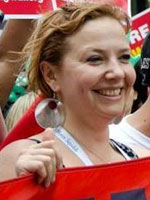
Anya Sarang is a public health activist from Moscow, Russia and the president of Andrey Rylkov Foundation for Health and Social Justice – the main advocacy group fighting for the rights and health of people who use drugs in Russia. For the past 18 years, Anya’s work has focused on developing and supporting the emerging harm reduction movement in Russia and Eastern Europe / Central Asia (EECA) through training and networking activities. Anya has received MSc in Drugs and Drug Policy from the University of London and MSc in Medical Anthropology and Sociology from the University of Amsterdam where her research focused on gender and sexuality and access to HIV prevention for men who have sex with men and transgender people in Tajikistan. Her research interest focuses on the qualitative studies in human rights, access to prevention and treatment of HIV, HepC, tuberculosis, and overdose for drug users and other key affected populations in EECA region as well as gender issues. While focusing mostly on her NGO work and human rights activism, she has also participated in a number of research projects and published over 25 scientific papers. Anya has been recognized as a courageous and effective advocate for human rights and health: in 2004 she has been awarded International Rolleston Award (for outstanding contribution to Harm Reduction) in 2011 a Crystal of Hope Award for ARF efforts to advocate for humane and effective HIV services, despite the government opposition; and in 2012 the Human Rights Watch/Canadian HIV/AIDS Legal Network award for action in HIV and Human Rights.
Richard Elliott, Canada
Read the bio
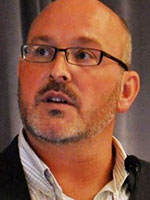
Richard Elliott is a lawyer and the Executive Director of the Canadian HIV/AIDS Legal Network, which undertakes research, education, advocacy and community mobilization to defend and advance the rights of people living with HIV and communities particularly affected by HIV. He has helped guide the Legal Network’s litigation in key HIV-related court cases in Canada and internationally. He has authored numerous reports, papers and articles on a range of legal and human rights issues in the context of HIV, and appears regularly in the media as an expert in the field. Previously, he provided and coordinated legal services to low-income people living with HIV and worked as a civil litigator in private practice, appearing before all levels of Ontario courts and the Supreme Court of Canada. He has appeared before legislative committees, served as an expert resource and technical advisor to UN agencies, taught or lectured at several law schools, presented extensively on HIV and human rights across the country and internationally, and served on the boards of directors of community organizations. He is a founding member of the Global Treatment Access Group (GTAG), an affiliation of Canadian civil society organizations advocating for access to medicines in developing countries; a member of the International Advisory Committee of the International Centre for Human Rights and Drug Policy; and a member of the strategy sub-committee of the International Drug Policy Consortium. Between 2001 and 2007, Richard was a member of the Ministerial Council on HIV/AIDS, the advisory body to Canada’s Minister of Health. In 2010–2011, he served as a member of the Technical Advisory Group of the Global Commission on HIV and the Law, and in 2015-16, as a member of the Expert Advisory Group to the UN Secretary General’s High-Level Panel on Access to Medicines. Richard holds an Honours Bachelor of Arts in Economics and Philosophy from Queen’s University, and both a Bachelor of Laws (LL.B., 1995) and Master of Laws (LL.M., 2006) from Osgoode Hall Law School (York University). He was called to the Bar of Ontario in 1997.
Prince Bahati Ngongo, Kenya
Read the bio
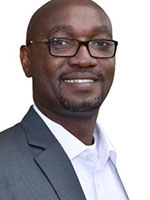
Prince Bahati Ngongo has over 20 years of experience in global health with a particular focus on HIV. He is the Executive Director, managing Global Policy, Advocacy, Research Preparedness at the International AIDS Vaccine Initiative (IAVI). He coordinates IAVI’s Policy analysis to increased sustainable capacity for HIV research in the developing world, to accelerate translation of findings into policies and practices and to ensure country and civil society ownership of and engagement in ethical and rights based HIV R&D. He has led and participated in initiatives that developed guidelines and guidance documents on conducting HIV and Sexual Reproductive Health Research in Kenya and Nigeria. He co-led a global project on developing guidance documents for conducting HIV research with MSM and other LGBT and has been involved in technical working groups on and implementation of Good Participatory Practices for HIV and Good Participatory Practices for Emerging Pathogens. He has led initiatives on domestic financing of HIV research in Kenya and East Africa. He has been involved in many South-South collaboration initiatives including India-Africa partnership on health sciences. He is a recipient of a UNDP South-South collaboration appreciation award. In Kenya, he has chaired the research task team on the HIV Prevention Revolution that contributed to the publication of the Kenya HIV Prevention Revolution and the Lancet article on geographical and population prioritization of HIV responses for maximum impact. He has published peer review articles, policy briefs, training manuals and presented at international conferences on issues related to health policy, ethics in health research, community engagement, health innovations, quality improvement, gender and rights based approaches to health research, knowledge management. Prior to his current position, he was the Senior Director Global Policy and Advocacy and director of IAVI country and regional programs based in New York. Prior to joining IAVI, Prince worked as the Africa consultancy services manager for Liverpool Associates in Tropical Health (LATH/LVCT). He managed consultancies and technical assistance projects for establishment of national guidelines in HIV counseling, HIV care and treatment, and related capacity building in Kenya, Malawi, South Sudan, Nigeria and Somaliland on HIV and integration of HIV with TB and Sexual Reproductive Health. He also worked as the data quality audit team leader for the Global Alliance for Vaccine and Immunization (GAVI Alliance)/UNICEF funded Expanded Programs for Immunization in Central African Republic, Guinea-Conakry and the Democratic Republic of Congo. Prior to working in global health, he worked as a teaching and research assistant at the United States International University in Kenya. He is the holder of the 2004 international prize for Young Investigator on HIV/AIDS and socio-economic award from the International AIDS Society. He holds a Harvard University Executive Certificate on Innovation for Economic Development, a Master of Science in Management and Organizational Development and a Master of International Business Administration from the United States International University – Africa (USIU-A); and a BA in Economics from the Catholic University of Bukavu (DRC Congo). He is currently pursuing a doctorate of Business Administration with specific focus on strategic management of health innovations at USIU-A.
John de Wit, the Netherlands
Read the bio

John de Wit (MSc, PhD) is professor of Interdisciplinary Social Science: Public Health at Utrecht University, and professor and past director of the Centre for Social Research in Health at the University of New South Wales, Sydney. John has been undertaking and leading behavioral and social research regarding HIV, STI and sexual health for over 25 years, and interest is especially with research into the individual, social and structural factors that shape effective prevention, diagnosis and treatment. John is passionate about contributing to the translation of research findings into policies, programs and services, and his research program encompasses the development and testing of innovative health promotion approaches and investigations of the practices, experiences and support needs of service providers. Reflecting his research leadership and broad interests, John has published widely across a range of topics and in esteemed peer-reviewed journals. He also is involved in various national and international committees. John was Track D co-chair of AIDS2014 in Melbourne.
Kate Shannon, Canada
Read the bio
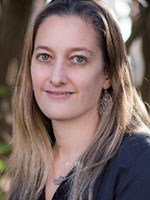
Dr. Shannon is Director of the Gender and Sexual Health Initiative, housed at the BC Centre for Excellence in HIV/AIDS. She is also Associate Professor of Medicine and Population and Public Health at University of British Columbia and a Canada Research Chair in Global Sexual Health and HIV/AIDS. Her work focuses on social and structural drivers of sexual health and HIV, violence, and access to care among marginalized populations, particularly sex workers, women living with and affected by HIV, and migrant and conflict-affected communities. She regularly consultants on international HIV and human rights guidelines, including WHO/ UNAIDS/ NSWP International Guidelines on HIV/STI prevention and care among sex workers, and Global Commission on HIV and the Law. Over the last decade, Kate has worked closely with community, policy and academic experts to evaluate the impact of laws, policies and structural interventions that impact health and social inequities among sex workers, women living with HIV, and migrant/refugee women.
Jonathan Cohen, USA
Read the bio

Jonathan Cohen is the director of the Open Society Public Health Program, which advances health and human rights by promoting social inclusion and a democratic commitment to the public good in health policy and practice. Cohen joined the Open Society Foundations in 2006 as the inaugural director of the Law and Health Initiative, supporting legal strategies to safeguard the health of socially excluded people. In 2012, Cohen became deputy director of the Public Health Program, where he facilitated program strategy and budget, deepened relationships with national and regional partners, and supervised core work. From 2002 to 2006, Cohen was a researcher with the HIV/AIDS and Human Rights Program at Human Rights Watch, where he conducted numerous investigations of rights violations linked to the AIDS epidemics in sub-Saharan Africa, southeast Asia, and North America. A Canadian lawyer, Cohen served as a law clerk at the Supreme Court of Canada in 2001 and was coeditor in chief of the University of Toronto Faculty of Law Review. He has published and spoken widely on a range of health and rights issues and was a cochair of the UNAIDS Reference Group on HIV and Human Rights
Cohen has degrees from Yale College, the University of Cambridge, and the University of Toronto Faculty of Law.
Ilya Zhukov, UNFPA
Andrew Ball, WHO
TRACK E: Implementation Research, Economics, Systems and Synergies with other Health and Development Sectors
Co-chairs
Charlotte Watts, UK, Local/Regional Co-Chair
Read the bio
Professor Charlotte Watts PhD FMedSci is Chief Scientific Adviser to the Department for International Development, where she is Director of the Research and Evidence Division. Charlotte is seconded from the London School of Hygiene and Tropical Medicine, where she is a Professor in Social and Mathematical Epidemiology. She is a global expert on HIV and on violence against women, with her work over the past twenty five years spanning analyses of the social, economic and gendered determinants of HIV risk, mathematical modelling of disease trajectories, intervention design and evaluation, economic evaluation and co-financing approaches. Charlotte has a PhD in mathematics from the University of Warwick, is a Fellow of the Academy of Medical Sciences, and foreign associate member of the US National Academy of Medicine. She has published over two hundred publications, led large research programmes, and supervised PhD students.
Jonathan Gunthorp, South Africa, International Co-Chair
Read the bio
Jonathan Gunthorp is the Executive Director at the Southern African AIDS Trust (SAT). He overseas SAT’s strategy based on four pillars: Sexual and reproductive health and rights (SRHR) interventions for girls, adolescents and young women; gender equality & empowering girls; data for health; and civil society participation in comprehensive & resilient systems for health. Jonathan works with the UNAIDS PCB NGO Delegation on issues of funding for civil society; and is concerned in southern Africa with issues of the sustainability and resilience of systems for health under the onslaught of population growth and NCDs. Jonathan has lead programmes in health, HIV and SRHR for nine years. He previously worked in national skills development, TVET systems and higher education governance.
Members
Ade Fakoya, Switzerland
Read the bio

Ade Fakoya, MD, FRCP is a clinician and specialist in HIV and International Health with over 20 years national and international experience in HIV, STI clinical care, service management and programme delivery.
He is currently Senior Disease Coordinator, HIV at the Global Fund to Fight AIDS, Tuberculosis and Malaria based in Geneva. Dr Fakoya has previously held technical, senior management and research posts working in the UK and Internationally. Over the last 3 years his team have provided technical support and coordinated partner technical cooperation which has seen the approval of over 5 billion USD in Global Fund grants. His areas of experience include HIV clinical care and treatment, prevention, and care, ARV scale up and provision of STI clinical services. He has provided technical support to national HIV programmes in Africa, Asia and Latin America. He has sat on a number of national and international advisory committees including those for ARV treatment guidelines, prevention of mother to child transmission guidelines and Sexual and Reproductive Health (SRH). His current interests include improving program quality by using robust data to drive program effectiveness and efficiencies, increasing access to anti-retroviral treatment and combination prevention towards ending HIV as a public health threat, HIV and TB integration and the role of disease specific funding initiatives in health systems strengthening.
Idrissa Ba, Senegal
Read the bio
Dr. Idrissa Ba is the Technical Coordinator of the Centre for the Integrated Management of Addiction in Dakar (CEPIAD). He is also a researcher in the Faculty of Medicine, Pharmacy and Dental Association at Cheikh Anta Diop University of Dakar. As a psychiatrist, Dr. Ba specialises in addiction. Dr. Ba. serves on several regional boards including, President of the Senegalese Association for the Reduction of Risks for Vulnerable Groups (ASRDR), President of the National Network of Stakeholders of the Civil Society on Drugs (RNSD) and a member of the West African Drug Commission (WACD). He was the principal coordinator on a survey of the size and prevalence of HIV and hepatitis and the risk practices among injecting drug users in Dakar.
Ashley John Duits, Curaçao
Read the bio
- Master in Biochemistry and Immunology, Radboud University Nijmegen, 1989
- PhD in Immunology, University Medical Center Utrecht, 1990
- Specialization as Medical Immunologist, registration by Dutch Society for Immunology, University Medical Center Utrecht, 1993
- Director Red Cross Blood Bank Foundation, Curaçao, 1994
- Medical Immunologist, St. Elisabeth Hospital, Curaçao, 1994
- Chair Medical Education, University Medical Center Groningen 2002
- Set up and main investigator HIV registration Curaçao in collaboration with SHM, Netherlands
- Prinicpal investigator several HIV research projects (epidemiology, treatment programs and effective public health approach for small scale (Caribbean) settings).
- PAHO advisor on small scale regional blood banks
Gabriela Gomez, United Kingdom
Jacquelyne Alesi Mugenyi, Uganda
Read the bio
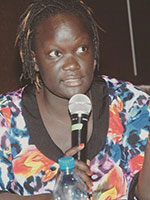
Jacquelyne Alesi is a 30-year-old, self-driven, committed young woman openly living with HIV and passionate about working with young people living with HIV. I have contributed actively to the HIV response nationally, regionally and within local communities. My extensive work with young people living with HIV in my various capacities, including that of being the Executive Director of the Uganda Network of young People Living with HIV has provided me a critical perspective which goes beyond my educational background, enabling me to be the only young person to chair the Policy, Advocacy and Programmes (PAP) Committee for the National Forum of People of Living with HIV/AIDS Networks in Uganda (NAFOPHANU) where I have been a board member from 2014-2016. My determination to contribute to the creation of an enabling environment for all young people living with HIV has seen me also represent and become the lead focal person for the ATHENA Network in Uganda as well as a Policy & Advocacy member of the Link Up Project (Integration of SHRH and HIV Services) among others. Challenges such as fragmentation of CSO’s, uneven distribution and limited coverage of HIV response programmes, especially for young people continue to hamper our efforts. Over the last six years, she has demonstrated ever greater leadership in the arena of HIV- SRHR integration, and has been very much in demand as a youth advocate living with HIV able to speak across a range of experiences and issues, including human rights, gender based violence, and LGBT rights, and meaningful youth engagement, among others, and working at all levels from conducting grassroots dialogues, to sitting on high level panels. She has been involved at the conceptualising, planning and implementing stages of a number of policy and advocacy processes, and has also implemented a mentorship programme within UNYPA to ensure the leadership and advocacy development of her younger colleagues.
Souhaila Bensaid, Tunisia
Read the bio

Woman living with HIV since 2000. Souhaila was an active militant from 2007, where she was at first a volunteer activist and then appointed as the PLHIV program manager. In 2010 she co-founded the first Tunisian PLHIV Support Group. In 2011, she co-founded the face book based International positive women movement “Words of Women +” as well as MENA based WLHIV regional network MENA ROSA. In 2011, Souhaila became a MENA regional representative of ICW. In 2012 a member of ITPC MENA and in 2014 she launched the Tunisian NGO ATP+ that she is still heading. She describes herself as a natural born leader and activist. Souhaila shares her love of life and positive energy with people around her. ATP+ is about this, the molecule that gives energy and life. She understands from her experience that PLHIV’ rights, apart from declarations and documents, have yet to be concretized in the field. This is also true for MSM, CSW, women and Young women, etc. As an activist, Souhaila is committed to continue the fight until all of those have full access to their rights.
Tigran Yepoyan, UNESCO
Read the bio
Tigran Yepoyan is UNESCO Regional HIV and Health Education Adviser for Eastern Europe and Central Asia since 2010. Before joining UNESCO, he worked for nine years with UNICEF in Russia as an HIV programme manager. Prior to joining UN, Tigran worked with World Vision International in Russia and Armenia developing community based health and education programmes. His broad base of professional experience also includes designing and leading the development of ICT-based resources on health promotion and education for service providers, parents and adolescents, behavior change communication campaigns, as well as teacher and parent sensitization and training.
Tigran is author and co-author of over 30 research and resource papers on HIV prevention, health education (including sexuality and substance use prevention education), prevention of school-related violence, PMTCT, care and support, and education of children and adolescents living with HIV.
Miriam Rabkin, USA
Read the bio
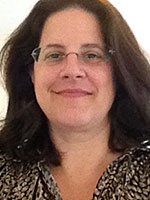
Dr. Rabkin has worked in the field of global health for 20 years, focusing on strengthening health systems to improve the delivery of health services for underserved populations. At ICAP Columbia, she works to design, implement and evaluate HIV and related health programs in low-resource settings (largely in sub-Saharan Africa), and to build the capacity needed to transition programs to local health Ministries and partners. Dr. Rabkin currently oversees ICAP’s Quality Improvement portfolio, leads the CQUIN learning network on differentiated service delivery for HIV, and supports a diverse program of health system strengthening activities. Her current research focuses on implementation science, and on ways in which to leverage the successes and lessons of HIV scale-up to strengthen broader health systems, and to enhance the quality of programs for HIV, maternal/child health, non-communicable diseases, and infection prevention and control in resource-limited settings. She has an MD from Columbia University’s College of Physicians & Surgeons, and an MPH (Epidemiology) from Columbia’s Mailman School of Public Health.
Read about the programme committee's vision
Science to guide management and policy
AIDS 2018 will deliver the latest evidence to guide HIV prevention, clinical management, policy, investment and programming. In times of constrained resources, decisions must be informed by excellent science and pragmatic considerations. Drugs developed for HIV treatment also work for HIV prevention. To fully realize their potential for individuals and for populations, there is a need to scale up access, reach all populations, including vulnerable and key populations, and seize the opportunity to tackle other health threats that may affect persons living with HIV or at risk of HIV infection. By monitoring impact, course corrections can be made nimbly, and steps taken to ensure engagement of individuals in long-term care, helping to achieve individual and population benefit while avoiding drug resistance.
AIDS 2018 will also be a forum for sharing updates on new prevention methods and on the implementation of combination prevention strategies that are aimed at reducing the number of new HIV infections. The conference will demonstrate how surveillance and cohort data will further our understanding of the trajectory of the epidemic. These data continue to inform priority populations for testing and prevention services, as well as the introduction of new diagnostics and therapeutic agents that have been shown to be effective in clinical trials, including those for co-infections and co-morbidities.
AIDS 2018 will identify important information, programming and financing gaps by region and by population, determining in partnership with affected populations how best to harness advances in service delivery methods, innovations, technology and data systems to advance progress towards the end of the HIV epidemic.
Investment with a long-term view is needed
AIDS 2018 will inject a reality check with respect to elimination of HIV in the era of the Sustainable Development Goals (SDGs) set by the United Nations. The journey to a cure or to a preventative vaccine is complex and will likely encounter successes, as well as setbacks; it requires investment, innovation and sustained commitment. Investment is also needed to ensure that people remain uninfected, and that all people with HIV have access to the care and treatment they need in order to live long and live well. The many people acquiring HIV each year are joining the millions of people living with HIV who are ageing. Adolescents and young people in some regions of the world continue to experience the brunt of the HIV epidemic, and they need to be able to make happy, healthy and safe sexual and reproductive choices.
As populations have become more mobile through choice or force, social disruption and sexual mixing are creating new HIV transmission networks. AIDS 2018 will highlight the risk that lack of access to needed services poses for migrant populations and the population in the host countries that they seek shelter in, and will report best practice. AIDS 2018 will demonstrate the ongoing need for sustainable investment in programming gaps if community and civil society responses are to be integrated within resilient systems for equitable and inclusive health over the coming decade.
Leveraging available resources to maximize impact
AIDS 2018 will focus on efficient and cost-effective strategies to reduce HIV risk and expand access to HIV prevention tools and antiretroviral treatment, respecting the choices, psychosocial needs and overall priorities of the target populations. The conference will aim for a holistic approach to integrated responses and integrated care through synergy across civil society groups and fostering collaborations across the various sectors, especially in tackling issues related to young people, women, transgender populations, and those who are displaced, incarcerated, experiencing mental health issues, or subject to stigma and discrimination.
The conference will explore peer-led strategies that reach those in need when and where it is convenient. It will formally acknowledge the key role of community healthcare workers and peer educators in community mobilization, engagement and retention in health programmes. AIDS 2018 will highlight national strategies for scale up of public health services that have taken an innovative approach to sustainable financing for programmes.